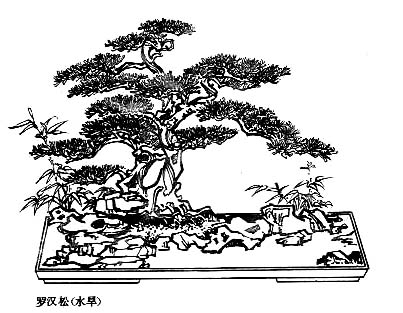Tang Shi  – 300 Tang poems
– 300 Tang poems
An anthology of 320 poems. Discover Chinese poetry in its golden age and some of the greatest Chinese poets. Tr. by Bynner (en).
| I. II. III. IV. V. VI. VII. VIII. |
Five character ancient verse (35 poems) Folk song styled verse (10 poems) Seven character ancient verse (28 poems) Folk song styled verse (16 poems) Five character regular verse (80 poems) Seven character regular verse (54 poems) Five character quatrain (37 poems) Seven character quatrain (60 poems) |
Poems of Du Fu, Li Bai, Wang Wei, Li Shangyin, Meng Haoran, Han Yu, Du Mu, Bai Juyi, Liu Changqing, Cen Can, Wang Changling, Wei Yingwu, full table |
Random samples
Huangfu Ran
Spring Thoughts
Finch-notes and swallow-notes tell the new year....
But so far are the Town of the Horse and the Dragon Mound
From this our house, from these walls and Han Gardens, [...]
Du Mu
A Mooring on the Qin Huai River
Mist veils the cold stream, and moonlight the sand,
As I moor in the shadow of a river-tavern,
Where girls, with no thought of a perished kingdom, [...]
Yuan Zhen
An Elegy I
O youngest, best-loved daughter of Xie,
Who unluckily married this penniless scholar,
You patched my clothes from your own wicker basket, [...]
Introduction
« The Three Hundred Tang Poems (Tang shi sanbai shou, 唐詩三百首) were compiled by the Qing scholar Sun Zhu 孫洙, also called Hengtang Tuishi 衡塘退士 "Retired Master of Hengtang", and published in 1764. Sun was not very pleased with the poems of the anthology Qianjiashi 千家詩 "A thousand master's poems" (late Southern Song) because of its lack of educational spirit. His own compilation became so popular that it is enclosed in a corpus of books that are found in almost every household still today. Sun's intention was to elect poems that serve to cultivate the character of the reader. Today, there exist some new compositions of three hundred Tang poems containing different opera, because the Qing time attitude to poetry as educational instrument has changed until today. Sun Zhu has divided his anthology into six different styles, comprising old style poems (gushi, 古詩), regular poems (lüshi 律詩) and short poems (jueju, 絕句), both with five and seven syllable verses. Between the particular sections, poems in the style of the old Han Music Bureau (yuefu, 樂府) are inserted that were still in use during the Tang Dynasty but gradually lost their original character and disappeared during the latter half of Tang. » See Chinaknowledge's page about poetry from Tang to Yuan.
Confer
- Chinese text and Bynner English translation found at Chinese text initiative. Almost all the poems have been translated by Witter Bynner in The Jade Mountain: A Chinese Anthology (New York : Alfred A. Knopf, 1929).
- Les quelques traductions françaises du Marquis d'Hervey Saint-Denys qui correspondent au recueil ont été ajoutées dans la base de donnée. Voir le texte complet des Poésies de l'époque des Thang.
- English Wikipedia : Chinese poetry, Li Bai, Du Fu.
- Directory : Dmoz on Chinese poetry
This sites dictionary and translation uses "cinnamonum cassia" which should actually be cinnamomum cassia 肉桂 (see. 21st century c.e. dictionary)
In a life as faithfully lived as theirs,
this couplet does not seem accurate to me. Isn't it rather that the chaste girl is buried with her husband and gives up her life to be like the above-mentioned?
That's really nice to see how plentiful infomation this website gives.
I think neither China nor Taiwan wouldn't have so wonderful website like this.
Hope you really enjoy Chinese Classic Poems!
Mr_waiting
finished
http://upload.librivox.org/share/uploads/ec/300tangpoems_vol_4_203.wav
Oh, this must be a comment board
Au printemps le sommeil dure au delà de l'aube
De tous les côtés parvient le chant des oiseaux
La nuit est à peine troublée par le murmure du vent et de la pluie
Qui sait combien de fleurs sont tombées cette nuit ?
http://e-texts.org/cetexts/0051.htm
On the desert, clad in sable and silk, five thousand of them fell....
But arisen from their crumbling bones on the banks of the river at the border,
Dreams of them enter, like men alive, into rooms where their loves lie sleeping.
The above translation was embellished with some "poetic license".
Literally, the words meant:
Pledged to sweep the Xiong-nu away without fear for their own safety;
Five thousand clad in sable and brocade perished in the dust of Hu;
Pity the bones littering the banks of the Wu Ding River,
they were the very people dreamt of in ladies' bedchambers.
— Sous la pinède, interroger le disciple.
— De répondre: Le maître cueille des simples,
— parcourant seul le coeur de cette montagne.
— Un nuage sombre isole du monde.

300 Tang poems – Tang Shi – Chinese off/on – Français/English
Alias Tang Shi San Bai Shou, Three Hundred Poems of the Tang Dynasty, Poésie des Thang.
The Book of Odes, The Analects, Great Learning, Doctrine of the Mean, Three-characters book, The Book of Changes, The Way and its Power, 300 Tang Poems, The Art of War, Thirty-Six Strategies
Welcome, help, notes, introduction, table.
Index – Contact – Top
